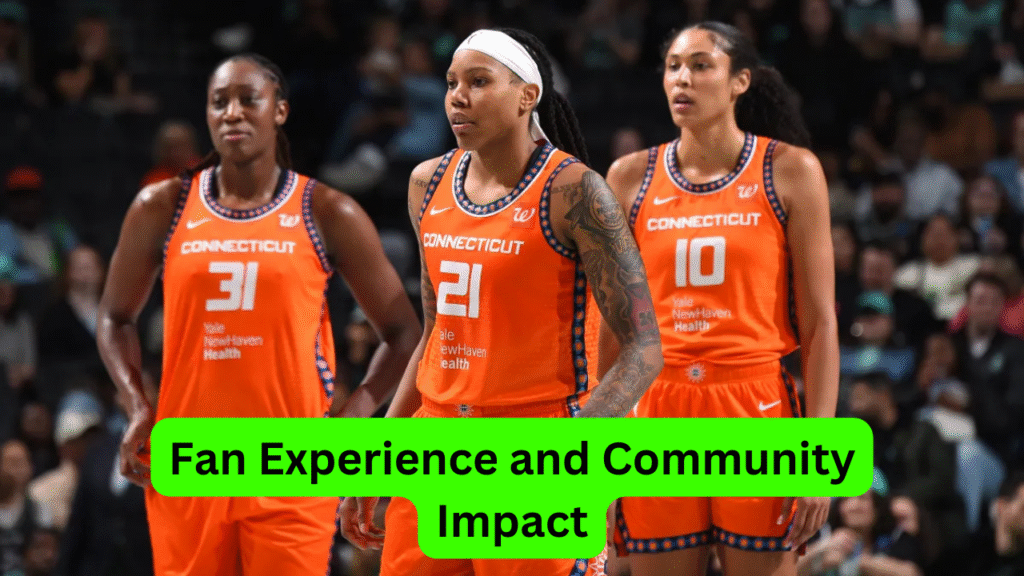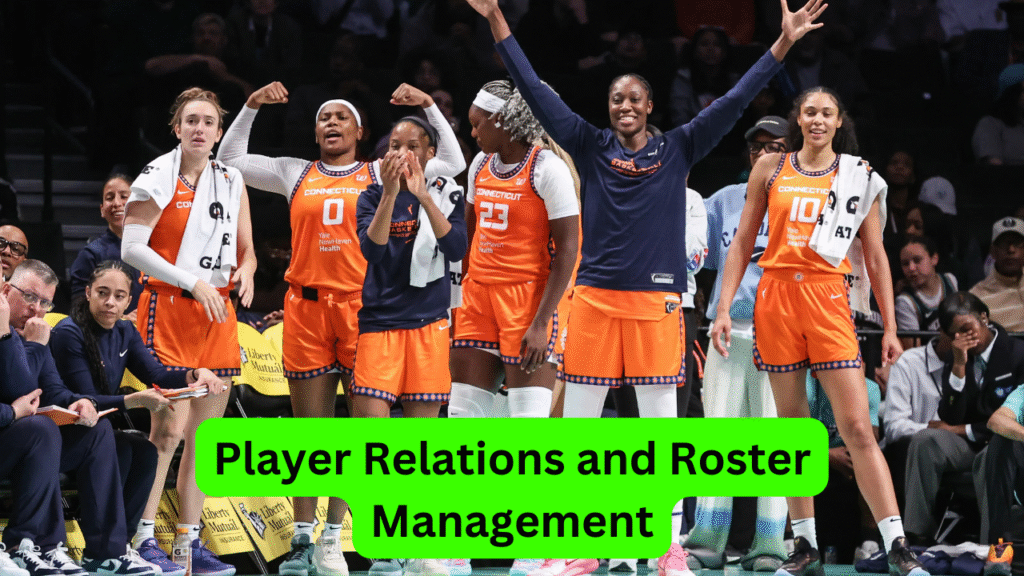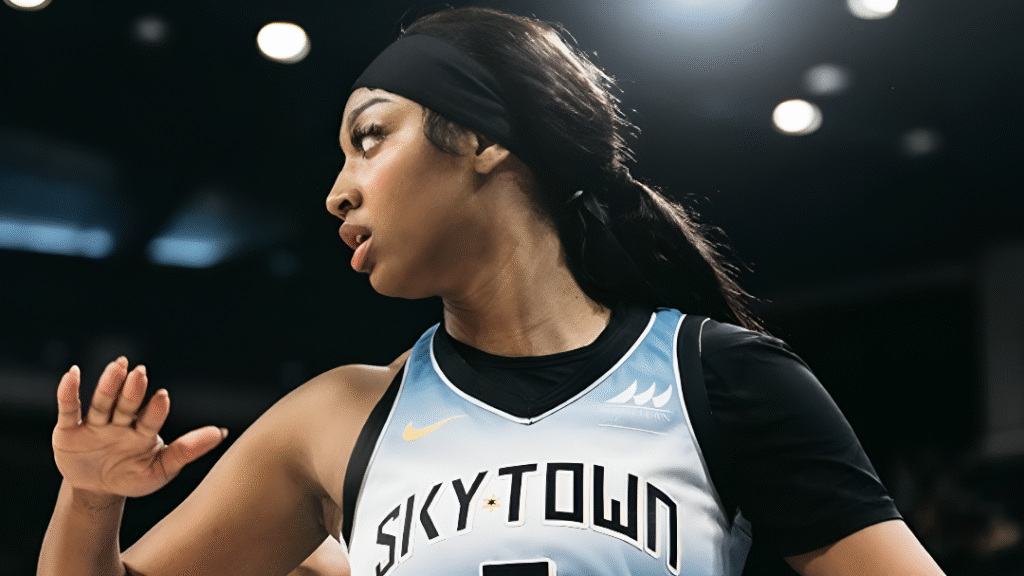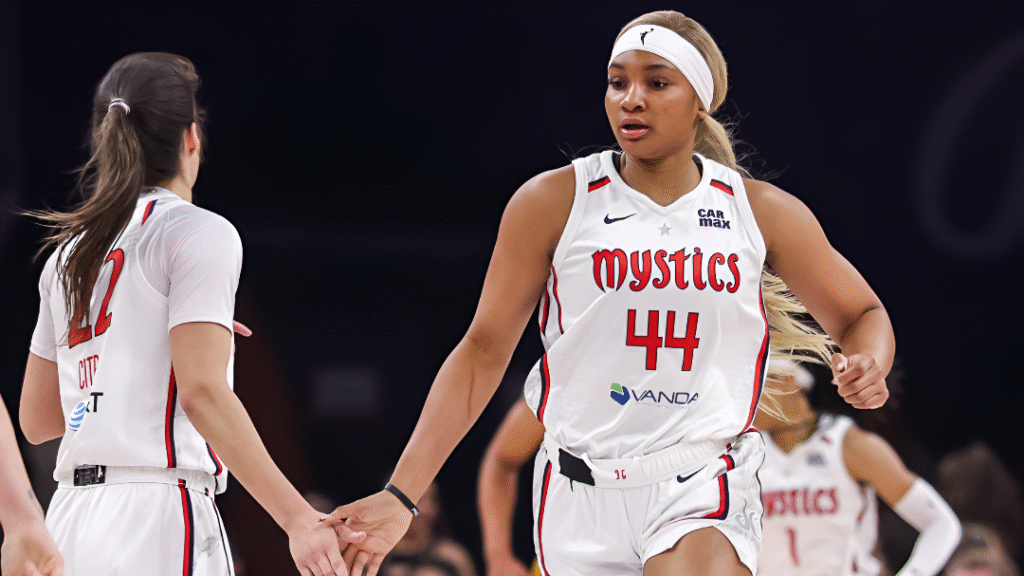WNBA franchise ownership transformation reaches new heights as Connecticut Sun’s potential sale reshapes professional women’s basketball business landscape.
The WNBA franchise ownership landscape is experiencing unprecedented transformation as the Connecticut Sun navigates a potential ownership change that could establish new benchmarks for professional women’s basketball valuations and operational standards. This significant development represents more than a simple business transaction—it symbolizes the evolving commercial viability and investment appeal of women’s professional sports in an increasingly competitive entertainment marketplace.
Breaking Down the Connecticut Sun’s Ownership Evolution
The current phase of WNBA franchise ownership transition for the Connecticut Sun reflects broader industry trends toward increased investment in women’s professional sports, with multiple interested parties recognizing the untapped commercial potential and growing fan engagement that characterizes modern professional women’s basketball.
Financial analysts examining the Sun’s valuation metrics have identified significant appreciation potential based on revenue growth, fan engagement statistics, and market expansion opportunities that make the franchise an attractive investment opportunity for forward-thinking ownership groups seeking profitable sports entertainment ventures.
The strategic positioning of the Connecticut Sun within the competitive WNBA landscape provides new ownership groups with immediate competitive advantages, including established fan loyalty, proven operational systems, and a track record of on-court success that reduces typical investment risks.
The timing of this WNBA franchise ownership transition aligns perfectly with league-wide growth trends, television contract enhancements, and increased corporate sponsorship interest that create optimal conditions for franchise value appreciation and long-term commercial success.
Potential Ownership Groups and Investment Profiles
The diversity of potential ownership groups expressing interest in the Connecticut Sun reflects the broadening appeal of WNBA franchise ownership as a viable investment opportunity that combines financial returns with positive social impact and community engagement benefits.
Technology entrepreneurs, entertainment industry executives, and traditional sports investors have all emerged as potential candidates, each bringing unique perspectives and resources that could transform the franchise’s operational capabilities and market positioning significantly.
The WNBA has established comprehensive vetting procedures for potential owners that ensure financial capability, operational competence, and commitment to league values while maximizing competitive opportunities for interested investment groups.
Celebrity investors and high-profile business leaders have shown increasing interest in women’s professional sports ownership, recognizing both the financial potential and cultural significance of supporting female athletic excellence at the highest professional levels.
Financial Implications and Market Valuation
The financial metrics driving current WNBA franchise ownership discussions reveal remarkable value appreciation trends that validate women’s professional basketball as a sound investment opportunity with significant upside potential for savvy investors.
Revenue diversification opportunities including merchandise sales, corporate partnerships, digital content creation, and facility utilization provide multiple income streams that enhance franchise financial stability while creating sustainable growth pathways for new ownership groups.
The comparative analysis of WNBA franchise ownership costs versus other professional sports investment opportunities reveals favorable risk-adjusted returns and lower entry barriers that attract investors seeking sports entertainment exposure without massive capital requirements.
Market research indicates that women’s professional sports viewership and engagement continue growing at rates that exceed many traditional male-dominated leagues, creating compelling business cases for WNBA franchise ownership investment.
Impact on Team Operations and Competitive Positioning
The transition to new WNBA franchise ownership typically brings operational enhancements and strategic investments that improve competitive capabilities while maintaining organizational culture and community connections that define successful franchises.
Player development programs, facility upgrades, and coaching staff enhancements often accompany ownership changes as new investors seek to maximize their competitive positioning and championship potential through comprehensive organizational improvements.
The retention of successful operational elements while introducing innovative approaches to fan engagement, player recruitment, and community outreach creates optimal conditions for sustained success under new ownership structures.
Strategic partnerships and corporate relationships often expand under new ownership groups that bring enhanced business networks and commercial opportunities that benefit both franchise operations and player compensation structures.

Fan Experience and Community Impact
The community engagement implications of WNBA franchise ownership changes extend far beyond basketball operations to encompass charitable initiatives, youth development programs, and social impact projects that strengthen franchise connections with local supporters.
Season ticket holder retention and fan loyalty preservation represent crucial considerations during ownership transitions, requiring careful communication and continuity planning that maintains established relationships while introducing positive enhancements.
Marketing strategies and promotional activities often receive significant investment from new ownership groups seeking to expand fan bases and increase community visibility through innovative engagement approaches and enhanced game-day experiences.
The economic impact of successful WNBA franchise ownership extends throughout local communities through job creation, tourism revenue, and business partnerships that contribute to regional economic development and community pride.
League-Wide Implications and Precedent Setting
The Connecticut Sun’s ownership transition could establish important precedents for future WNBA franchise ownership transactions, including valuation benchmarks, operational standards, and investment expectations that influence league-wide development patterns.
The success of this ownership change will likely influence other potential franchise sales and league expansion decisions, as investors and league officials evaluate the commercial viability and growth potential of women’s professional basketball investments.
Competitive balance considerations ensure that new ownership groups understand their responsibilities to maintain league parity while pursuing individual franchise success through strategic investments and operational improvements.
The professional standards and business practices established through successful ownership transitions contribute to overall league credibility and commercial appeal among potential investors, sponsors, and media partners.
Facility and Infrastructure Development
Infrastructure improvements and facility enhancements often accompany WNBA franchise ownership changes, with new investors recognizing the importance of modern amenities and competitive facilities for attracting top talent and enhancing fan experiences.
Training facility upgrades, technology integration, and performance analysis systems represent common areas of investment that new ownership groups prioritize to maintain competitive advantages and support player development initiatives.
Arena partnerships and venue relationships require careful management during ownership transitions to ensure continuity of operations while exploring opportunities for enhanced arrangements that benefit all stakeholders involved.
The long-term facility planning and infrastructure development that accompany successful ownership transitions create sustainable foundations for franchise success that extend far beyond individual ownership tenures.

Player Relations and Roster Management
The impact of WNBA franchise ownership changes on player relationships and roster construction requires careful management to maintain team chemistry while introducing new resources and opportunities that enhance competitive positioning.
Contract negotiations and salary considerations often benefit from ownership changes that bring additional financial resources and commitment to competitive excellence through strategic player acquisition and retention strategies.
Player development programs and support services frequently receive enhanced investment from new ownership groups committed to maximizing individual and team potential through comprehensive athlete support systems.
The balance between maintaining successful team culture and introducing positive changes requires sophisticated management approaches that preserve winning elements while enabling continued improvement and growth.
Marketing and Brand Development
Brand identity evolution and marketing strategy enhancement represent significant opportunities for new WNBA franchise ownership groups seeking to expand market reach and increase commercial revenue through innovative promotional approaches.
Social media engagement and digital marketing capabilities often receive substantial investment from new ownership groups that recognize the importance of online presence and fan interaction in modern sports entertainment environments.
Also Read: Latest Trending News
Corporate partnership development and sponsorship acquisition benefit from fresh ownership perspectives and enhanced business networks that create new revenue opportunities and strategic alliances.
Future Growth and Expansion Opportunities
The long-term growth implications of successful WNBA franchise ownership transitions extend beyond individual franchises to encompass league-wide expansion potential and increased investment interest from diverse ownership groups.
International market development and global brand expansion represent significant opportunities for visionary ownership groups committed to growing women’s professional basketball beyond traditional domestic markets.
The precedent established by successful ownership transitions influences future league policies, expansion decisions, and investment attraction strategies that benefit all stakeholders throughout the professional women’s basketball ecosystem.
The WNBA franchise ownership evolution represented by the Connecticut Sun’s potential sale symbolizes more than business transaction—it represents the maturation of women’s professional sports as a legitimate, profitable, and socially impactful investment opportunity that attracts serious business leaders committed to excellence.


